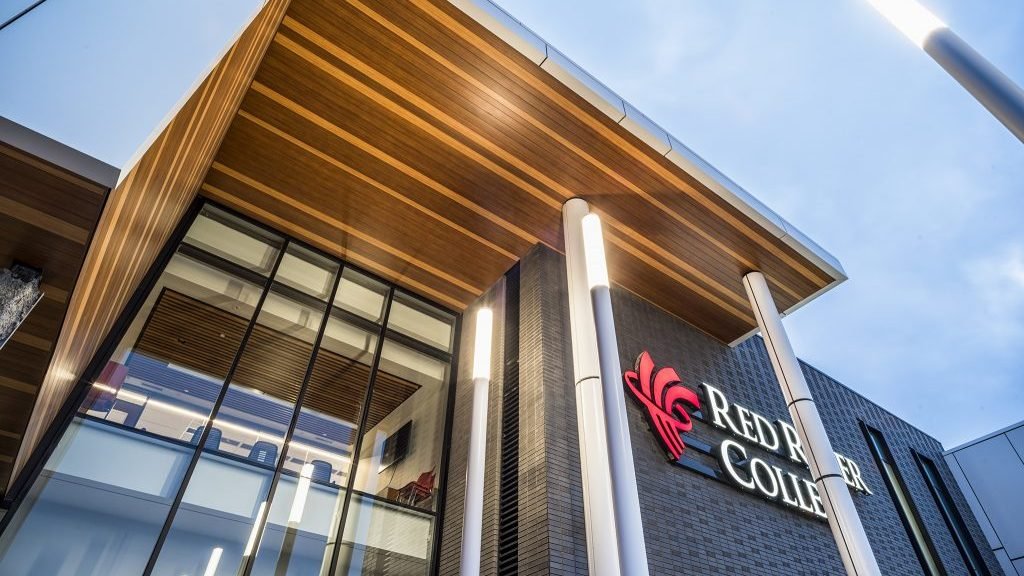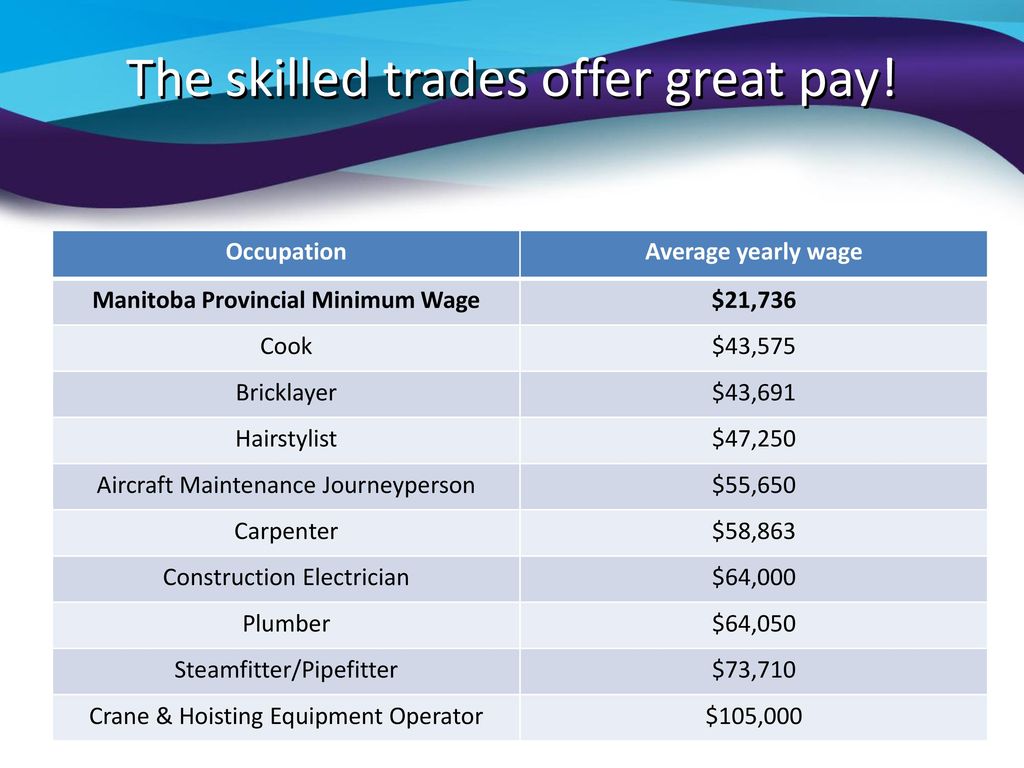

SBDHS Skilled Trades Options: SBDHS has a shared agreement with Nelson McIntyre Collegiate offering courses in Human Ecology (Food & Nutrition and Textile Arts & Design) and Industrial Arts (Power Mechanics and Pre-Engineering). In Food & Nutrition, students will learn about kitchen basics, nutrition and food preparation while in Textile Arts & Design, students can use their creative skills to design their own unique projects. In Power Mechanics, students will learn all about car basics with opportunity to work on student or customer vehicles. Pre-Engineering is a project-based course where students are challenged to solve open-ended engineering problems. In all of these skilled trades options, students will learn safety protocols and the correct use of equipment.

Skilled trades training opens the door to an exciting world of possibilities, promising innovative work, rewarding roles, and opportunities for great pay and advancement.
Red River College is home to the province’s most comprehensive skilled trades and technology programs, and our facilities are always expanding to meet Manitoba’s labour and training needs.
Advance yourself. By joining skilled trades at St. Boniface Diocesan High School you have the ability to fast-track your College education. By earning credits prior to entering RRC you are taking the extra step to joining the workforce sooner.
| Food & Nutrition 10S (1.0 credit) |
| Dept. of Ed. Code: 0489 |
| Pre-requisite: None |
Students will explore the basics of nutrition and healthy eating. Topics emphasized include Canada’s food guide, understanding of personal eating behaviors, kitchen safety, accurate measurement, tools and their uses, food preparation skills and techniques. Practical labs, twice per week, will support and enhance classroom theory.
| Food & Nutrition 20S (1.0 credit) |
| Dept. of Ed. Code: 0489 |
| Pre-requisite: None |
Students will gain a greater understanding of the 6 essential nutrients that our bodies need, and discover the strong link between eating habits and lifelong health and wellness. Food labs, twice per week, will support and enhance classroom theory.
| Food & Nutrition 30S (1.0 credit) |
| Dept. of Ed. Code: 0489 |
| Pre-requisite: None |
This course promotes the development of personal health by exploring the psychology of food choices and provides the opportunity for self-assessment of eating habits. Current food trends are explored and analyzed as well as diet related concerns such as fad diets and sports nutrition. We celebrate cultural diversity by examining the culinary regions of Canada, and focus on the food industry unique to Manitoba. Food labs, twice per week, will support and enhance classroom theory.
| Food & Nutrition 40S (1.0 credit) |
| Dept. of Ed. Code: 0489 |
| Pre-requisite: None |
Students are challenged with the current issues of
hunger, both locally and globally and also study the global food supply. This leads into the study of international foods and research on a country of choice. We explore the latest in food technology: irradiated foods, genetically modified foods and organic food. And finally, concentrate on developing life skills by planning nutritional meals within a limited budget

| Pre-Engineering 1&2 15G (0.5 credit) |
| Dept. of Ed. Code: 0214 |
|
Co-requisite: Power Mechanics 15G |
Introduction to Engineering is an applied science course where students apply knowledge from academic courses to design and build solutions to problems. In this course, students work in a technology lab environment to build hands-on projects. Students will develop technical skills and knowledge while working with a variety of machines (3D printers, CNC routers, power tools, etc.) and materials (wood, metal, plastic, etc.) to build projects. Course topics include lab safety and management, engineering design process, communication, mechanical engineering, electrical engineering, civil engineering, environmental engineering, and robotic engineering. This course allows students to develop a foundation of technical skills and knowledge while participating in hands-on projects in a technology lab environment. Students will improve upon their problem-solving skills while taking part in various areas of study. This course may lead students to post-secondary studies in a related field or simply provide useful knowledge.
| Power Mechanics 20G (1.0 credit) |
| Dept. of Ed. Code:7965 |
| Pre-requisite: None |
This course is designed to increase students’ awareness and understanding of various automotive practices and processes and to relate their significance to various automotive systems. Topics include: student orientation and safety, brake systems, ignition system – tune ups, fuel systems – carburetion, drive line clutch, gas and arc welding, engine type, engine tests and measurements, suspension, steering system, heating and air-conditioning, transmission.
| Power Mechanics 30G (1.0 credit) |
| Dept. of Ed. Code: 7965 |
| Pre-requisite: None |
Students will increase their awareness and understanding of various automotive practices and processes. They will perform various repairs and maintenance functions on various automotive systems and continue to develop safe practices. Topics include: student orientation and safety, automatic transmissions, emission controls, heating and air conditioning, electrical systems, and exhaust systems.
| Power Mechanics 40G (1.0 credit) |
| Dept. of Ed. Code: 7965 |
| Pre-requisite: None |
Students will rebuild various automotive components to increase awareness of, and their suitability for, the employment market. Topics include: student orientation and safety, engine head rebuild, MIG welding, engine diagnostic analysis, carb rebuild, fuel injection service, starter and alternator rebuild, and automatic transmission rebuilds.